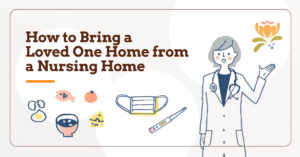 Will a pacemaker in the brain be the solution for treating Alzheimer’s disease?
Will a pacemaker in the brain be the solution for treating Alzheimer’s disease?
Across the state of Connecticut 70,000 people live with Alzheimer’s disease. Experts believe that number will grow by 12% to 76,000 people in 2025. For caregivers in Connecticut, those numbers probably come as no surprise. But there are recent clinical trials that do offer a glimmer of hope to overcoming this rapid increase in the prevalence of the disease. One such trial is focused around using a pacemaker in the brain.
Alzheimer’s pacemaker trials begin at The Johns Hopkins University Medical Center
The trials at Johns Hopkins started in December of 2012. Surgeons placed pacemakers in the brains of two patients with early-onset Alzheimer’s disease. The pacemakers are attached to the portion of the brain that is responsible for memory. The goal for 2013 is to perform the same procedure on another 40 patients at Johns Hopkins and four other medical centers across the country.
This trial was developed out of a smaller one conducted in Canada with promising results. Patients who participated in the study in Canada saw their glucose metabolism numbers increase after a pacemaker was implanted. That is encouraging news to researchers who believe glucose metabolism is a measure of neuronal activity. As Alzheimer’s disease progresses, glucose metabolism decreases. The pacemaker seems to have reversed that decline in participants.
The surgery isn’t as grisly as it sounds. In fact, surgeons say it is a fairly straight forward procedure for patients. The pacemaker is placed under a patient’s should blade. Tiny holes are made in the upper forehead of the patient through which narrow wires are attached to the brain. Once the energy levels are regulated, the patient won’t be able to feel anything from the pacemaker.
Similar Trials at Ohio State Wexner Medical Center
The team at Wexner is also testing pacemakers in the brain for treating Alzheimer’s disease. The major difference is that they are targeting the area of the brain that regulates behaviors and cognitive functioning instead of memory.
Follow the Progress of These Trials
Those wishing to follow the progress of either or both of these trials can sign up to follow our blog . Or you can follow the trials directly:
Support for Family Caregivers
If you are a family caregiver in Connecticut caring for a loved one with Alzheimer’s disease, Assisted Living Services, Inc. can help. Our Care Plus Program combines personal caregiver services with the latest remote monitoring technologies. The combination of personal service and monitoring offers busy family caregivers peace of mind that a loved one with dementia is safe when they can’t be there.
Would you encourage a loved one with Alzheimer’s disease to participate in one of these trials? We would love to hear what you think in the Comments below.
Photo Credit: louisa_catlover via Compfight cc





